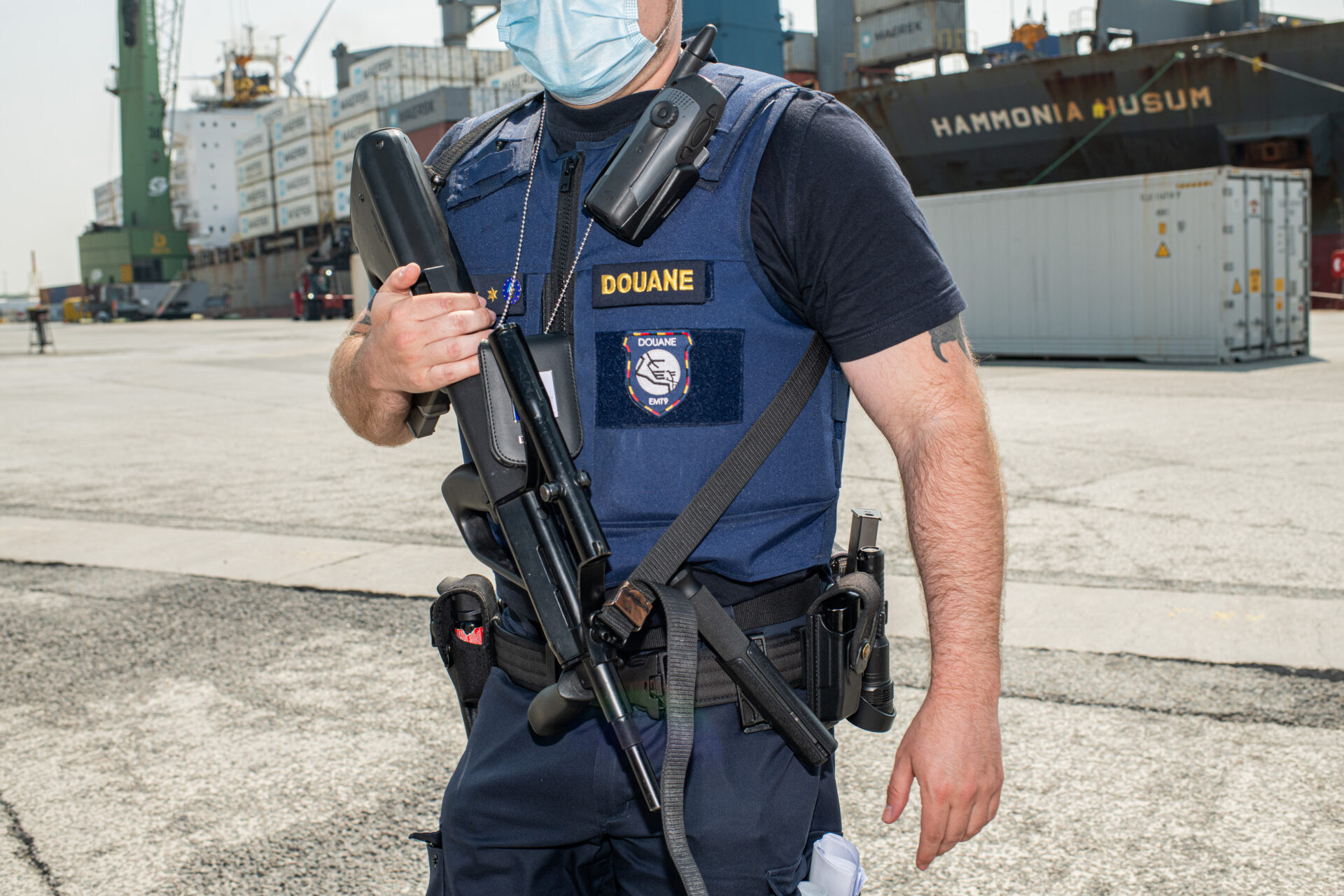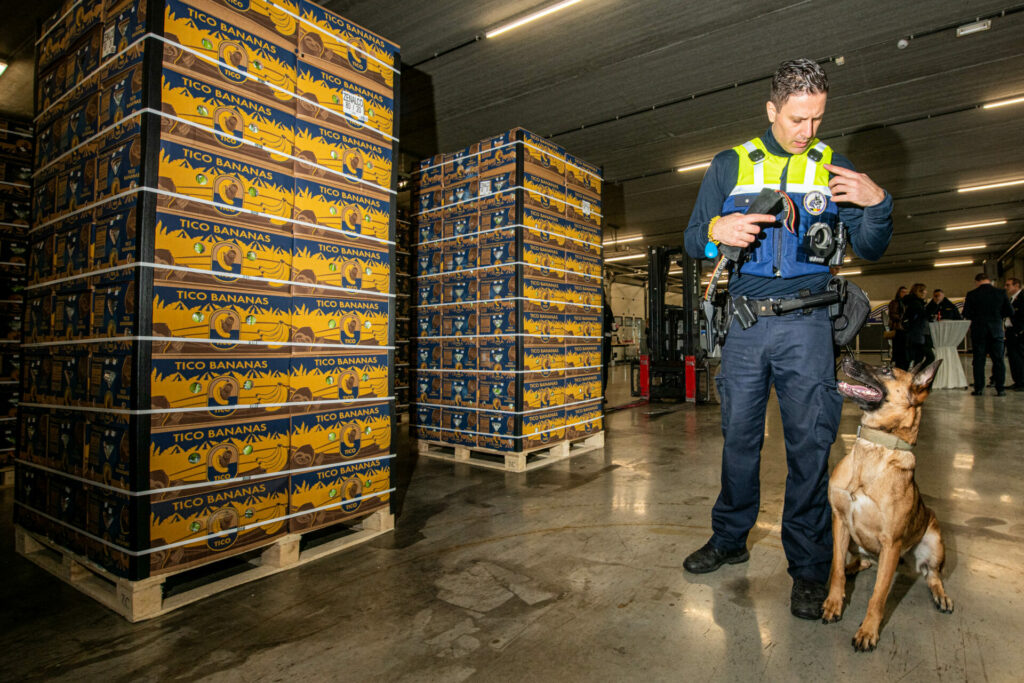Belgium is the preferred point of entry for Colombia's biggest drug cartels to exploit the European market. Whilst it is no secret that the Port of Antwerp is the continent's cocaine hub, a massive journalistic investigation provides insight into trafficking from South America.
The "NarcoFiles" project is the result of collaboration between more than 40 media agencies around the world. It sheds light on how drug cartels operate in Colombia – the country that produces the majority of cocaine consumed worldwide.
That Belgium is at the heart of this criminal network is well known. However, Knack and De Tijd investigated all leaked documents that related to Belgium as part of the NarcoFiles project and found that Colombian drug gangs direct their operations towards Belgium above all other European access routes.
Exposing the tricks of the trade
From 2017 to 2021, Colombian authorities at five major ports intercepted at least 17.7 tonnes of cocaine destined for Antwerp. Meanwhile, an increasing number of large cocaine shipments are being intercepted at Antwerp port itself. In the past few weeks, customs and police have intercepted a total of more than 23 tonnes of cocaine in the port – good for a street value of more than €2 billion.
Several large Colombian cartels, such as La Cordillera – founded 20 years ago by paramilitary commander Carlos Mario Jiménez, send cocaine destined for the European market via Belgium.

Antwerp Port Customs worker. Credit: Belga / Jonas Roosens
NarcoFiles showed that cartels and gangs have at their disposal speedboats and submarines to get the drugs onto the ships that eventually arrive in Belgium. In one instance, members of Clan del Golfo – the largest drug cartel in Colombia – had climbed aboard container ships to load up 820 kilogrammes of cocaine destined for Antwerp.
The files also points to a number of Colombian export companies that help with the trade and can pocket up to $500,000 per container they successfully get into Antwerp. Other strategies involve concealing the drug in fruit juice, coal or textiles, after which it is recovered in "cocaine laundries" located in Belgium.
Breaking the business model
Whilst the revelations shed light on the operations undertaken to smuggle cocaine through Belgium, it is not known what proportion of the drug is intercepted by authorities. Law enforcement has previously estimated that 11% of imports are apprehended, and that the trade will remain profitable so long as no more than 20% is caught.
Recent seizures in Belgium have been described as "truly unprecedented" and last year's record of 110 tonnes of drugs seized will likely be broken "by about a quarter higher," customs officials say.
But the gangs won't give up without a fight, and port workers have been targeted as criminal networks in Belgium turn to increasingly violent measures to regain intercepted cargoes.
Hand in hand with armed violence
A recent study into the connection between drug markets and gun violence in the European Union zoomed in on systemic drug-related gun violence. Here too, it was clear that efforts are concentrated around the Port of Antwerp.
The study, a joint effort by the Flemish Peace Institute and commissioned by the European Monitoring Centre for Drugs and Drug Addiction (EMCDDA), showed that the cocaine market changed fundamentally after the conclusion of the peace agreement in Colombia in 2016.
But operations in Europe have in the intervening years shifted, moving from the Iberian Peninsula, which for a long time was the most important entry point for cocaine into Europe, to Antwerp and Rotterdam. It is believed that the majority of cocaine trafficked to Belgium is orchestrated by Dutch organised crime groups, who oversee distribution across Europe.
The study also links firearm violence in Europe to the nature of the cocaine market and the criminals involved. It noted that "Law enforcement operations resulting from the hacking of Sky ECC have likely contributed to the recent escalation in drug-related gun violence in Antwerp."
Related News
- Belgian customs shortages preventing quick destruction of seized drugs
- ‘We need to burn cocaine faster’: Antwerp Port workers facing revenge violence by drug gangs
Between 2015 and August 2022, 141 serious incidents were reported in Antwerp, including shootings and the use of hand grenades. Whilst 2021 saw just 30 violent incidents, this leapt to 60 incidents just between January and mid-August 2022, of which 30 were between June and mid-August.
The rise in violence has been linked to firearms becoming more widespread. No longer limited to high-level conflicts, guns are increasingly used in lower level street crime. Peace Institute director Nils Duquet sees combatting the influx of illegal weapons as crucial and warns that "Europe has made this a real policy priority for years but not in Belgium. That urgently needs to change."

